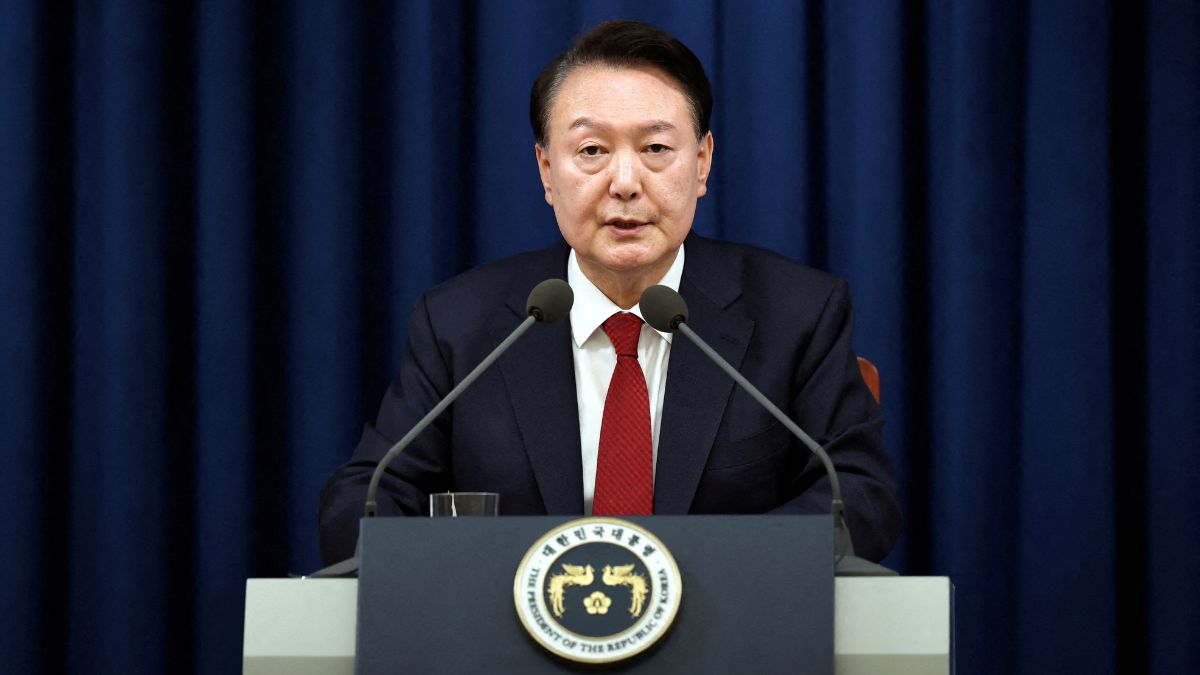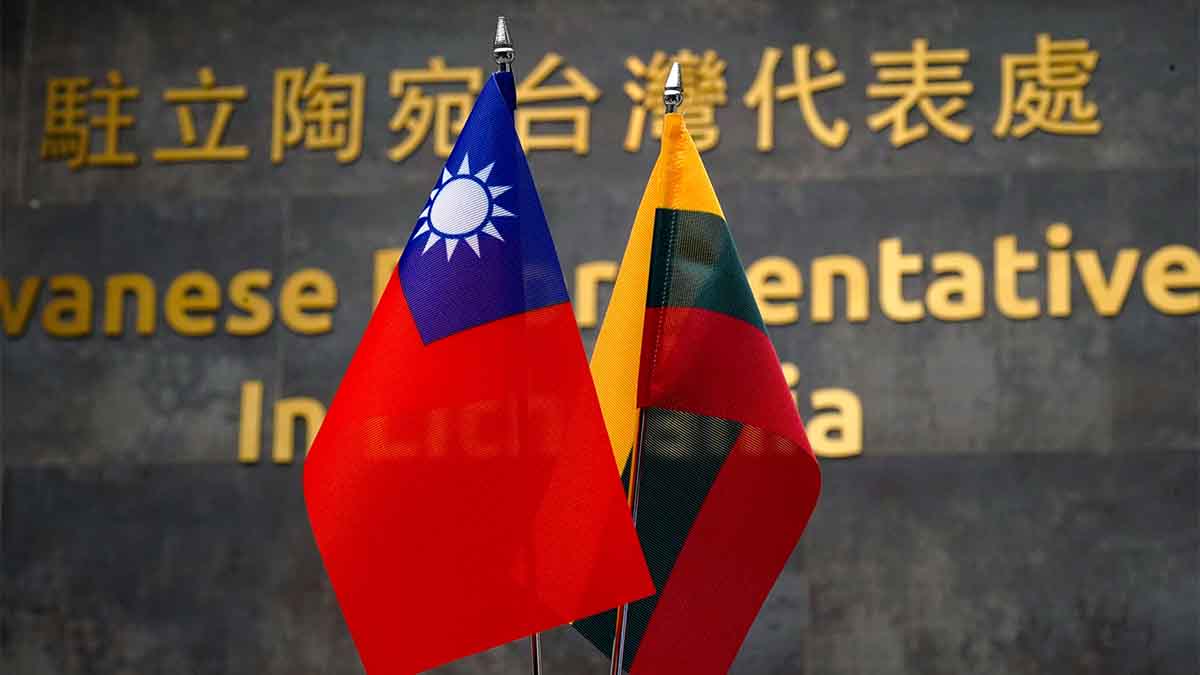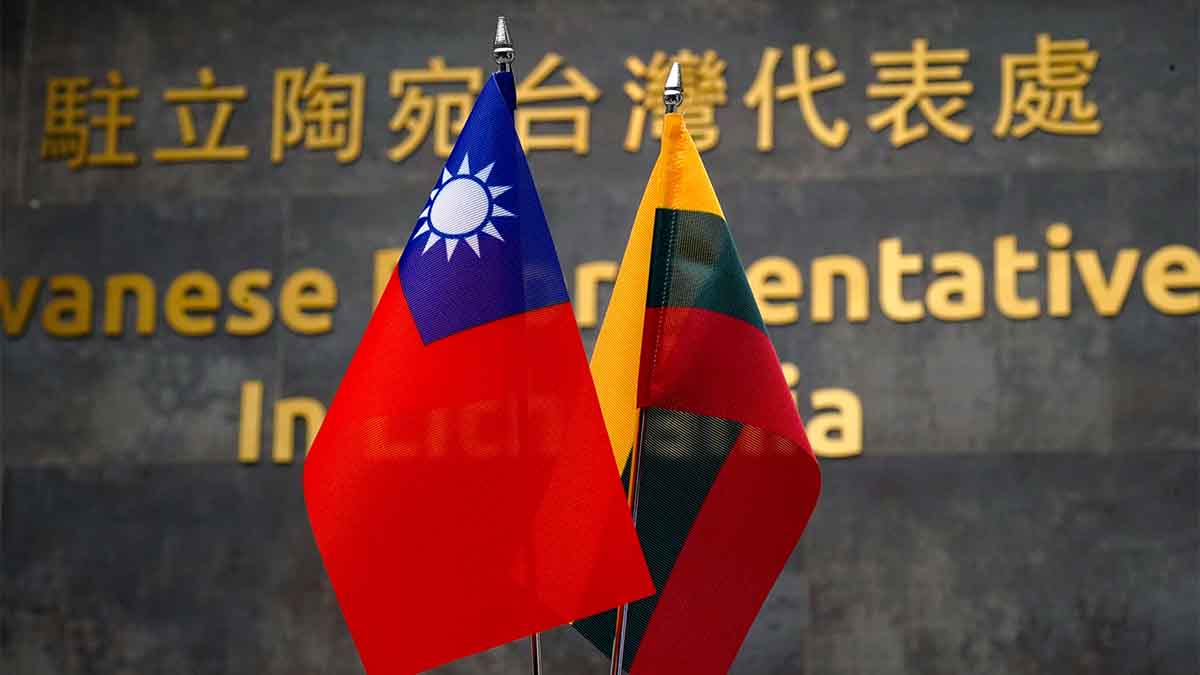South Korea still reeling from the brief imposition of martial law by President Yoon Suk Yeol.
Yoon may have survived one impeachment, but he faces another one on Saturday.
Meanwhile, Kim Yong Hyun, the former defence minister who took responsibility and resigned, has attempted to commit suicide in police custody.
These developments come as the protest against Yoon continue unabated.
Let’s take a closer look at all the happenings in South Korea.
Police raid, travel ban
As per The Guardian, police on Wednesday raided Yoon’s presidential office in Seoul.
The outlet quoted Yonhap news agency as saying that this was part of a probe by agencies to determine whether Yoon was engaging in insurrection.
The penalty for insurrection in South Korea is death. It is not covered by presidential immunity.
The New York Times reported that Colonel Kim Hyun-tae, who led the special forces unit into the National Assembly, was ordered to remove lawmakers in order to step them holding a vote.
“The special investigation team has conducted a raid on the presidential office, the National Police Agency, the Seoul Metropolitan Police Agency, and the National Assembly Security Service,” the unit told AFP.
This came a day after Yoon was banned from leaving the country – a first for a sitting president.
Washington Post reported that the ban was imposed on Yoon after the Corruption Investigation Office for High-ranking Officials sent a request to the Ministry of Justice.
Oh Dong-woon, the chief of the office, told a hearing an extensive probe would be carried out into “the leader and key offenders related to treason.”
According to BBC, authorities also barred several other top officials including Kim, Defence Counterintelligence Commander Yeo In-hyung, and Army Chief of Staff Park An-su from traveling abroad.
Second impeachment
Yoon on Saturday narrowly survived an impeachment vote.
This, after MPs from his People Power Party boycotted the motion – thus failing to establish the necessary quorum.
The opposition needed at least eight votes from Yoon’s PPP to reach the two-thirds majority needed to impeach.
As PPP lawmakers departed after casting votes on a separate motion, some people shouted and cursed them. Just three lawmakers from Yoon’s party voted.
However, PPP leader Han Dong-hoon in the aftermath of the vote said Yoon would resign.
“The declaration of martial law was a clear and serious violation of the law,” Han told reporters.
Han has a history of clashes with Yoon, however, and it was unclear if he was speaking for all PPP members.
“The People Power Party will pursue an orderly departure of the president in order to minimise confusion for the people,” Han said, adding that until Yoon leaves, he would be “effectively excluded from his duties, and the prime minister will consult with the party to manage state affairs.”
As per The Guardian, the PPP is coming up with a “resignation roadmap” for Yoon.
The president could resign by February or March.
However, the opposition Democratic Party, slammed the seeming deal struck between PPP and Yoon.
The Democratic Party’s floor leader Park Chan-dae termed it “an illegal, unconstitutional second insurrection and a second coup,” as per BBC.
The DP called the pact “absurd and illegal.”
“Neither the people, nor the law, nor anyone has given Han the power to remove (Yoon) from office,” the party said in a statement, saying impeachment is the only way.
As per The Guardian, the opposition has vowed to hold an impeachment vote every Saturday.
If Yoon leaves office before his single five-year term ends in May 2027, the constitution requires a presidential election within 60 days of his departure.
Martial law has been declared more than a dozen times since South Korea was established as a republic in 1948, the last time in 1980.
As per Washington Post, Yoon had ultimately rescinded the martial law decree and apologised for causing “anxiety and inconvenience” and vowing to face “legal and political responsibility.”
“I will entrust my party to take measures to stabilise the political situation moving forward, including my term in office,” Yoon added,
Ex-defence minister suicide attempt
All this comes as Kim attempted suicide while in custody.
As per BBC, Kim was discovered mid-attempt at the Seoul detention centre on Tuesday, Shin Yong-hae, the justice ministry’s correctional agency chief, told lawmakers.
Shin Yong-hae, the justice ministry’s correctional agency chief, told lawmakers.
Kim is the first person to be arrested over the December 3 martial law decree.
He has been charged with playing a key role in rebellion and committing abuse of power.
The Seoul Central District Court had approved the arrest warrant for former Kim on the basis of the significance of his alleged crime and on the chance that he could destroy evidence.
Kim, one of Yoon’s close associates, resigned Thursday and has been detained since Sunday.
Prosecutors have up to 20 days to determine whether to indict him. A conviction on the charge of rebellion carries a maximum death sentence.
Kim has been accused of recommending martial law to Yoon and sending troops to the National Assembly to block lawmakers from voting on it.
Kim said in a statement Tuesday that he “deeply apologises for causing significant anxiety and inconvenience.” He said all responsibility for the imposition of martial law rests solely with him and pleaded for leniency for soldiers deployed to enforce it, saying they were only following his orders.
‘Vegetative state’
Analysts say Yoon’s presidency is in ‘a vegetative state.’
According to Washington Post, in South Korea, the prime minister can become interim president in case of a vacancy.
The PM can also take over in case the president is “unable to perform his/her duties for any reason.”
Though Yoon remains South Korea’s commander-in-chief, top officials has vowed not to follow any new order to impose martial law.
Ha Shang-eung, a political science professor at Sogang University, told Korea Herald, “If the president is unable to effectively exercise their authority, and someone who was not elected by the people takes over those powers, or if the president has effectively stepped down, then in any case, having a ‘vegetative president’ play a role in foreign affairs is unconstitutional at its core.”
“Moreover, how would other countries perceive this? I believe that is an extremely important consideration.”
Joel Atkinson, a professor at the Graduate School of International and Area Studies at Hankuk University of Foreign Studies, added, Yoon is now something worse than a lame duck. Anything he touches diplomatically will be undermined.”
“However, Han Dong-hoon and Han Duck-soo are emphasizing that there won’t be a vacuum, including in foreign policy. I take this to mean that the administration will be working to sustain what is going on rather than starting anything new.”
Mass protests continue
Tens of thousands of protesters have braved near sub-zero temperatures and gathered outside the National Assembly in the capital of Seoul since Yoon’s failed martial law attempt last week.
As per Andalou News Agency, Tuesday witnessed thousands hold a candlelight vigil outside the National Assembly in Seoul.
Organisers claimed 40,000 people attended and slogans such as “Yoon Suk Yeol, step down” and “Disband the People Power Party (the ruling party)” were chanted.
Seoul-based Yonhap News, however, quoted an unofficial police estimate as pegging the number of protesters at 6,000.
In Tuesday’s declaration, Yoon gave the military sweeping emergency powers to combat unspecified threats from “North Korean communist forces” and “to eradicate the shameless pro-North anti-state forces”.
He also accused the National Assembly of launching an unprecedented number of impeachment efforts against members of his administration, effectively paralysing key operations, and of handling the budget in a way that undermined the fundamental functions of the government, including public safety.
He rescinded the order six hours later, after parliament defied military and police cordons to vote unanimously against the decree.
With inputs from agencies


)
)
)
)
)
)
)
)
)



